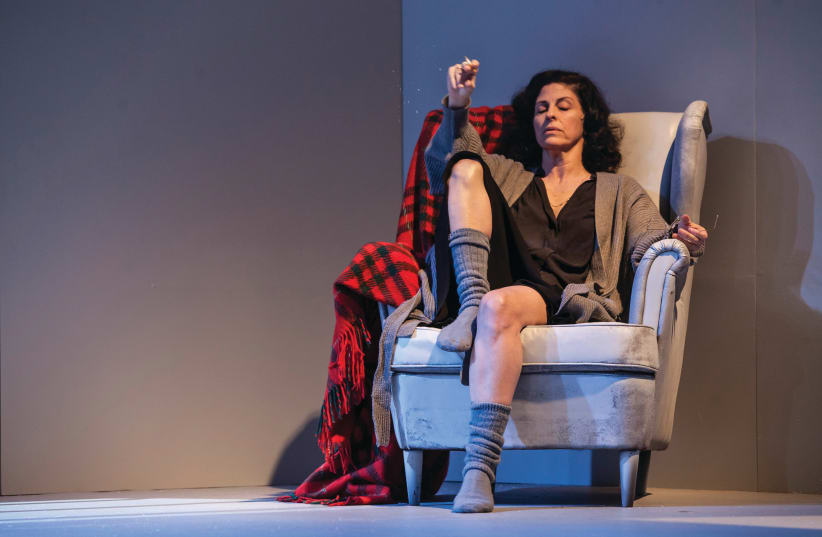It’s called the Empty-Nest Syndrome. It attacks mainly women whose children have grown and left home, leaving their mothers deprived, as it were, of a reason for existence. They’re mothers. Now they have no-one to mother, so they mope. Big time.
That’s Anne (Efrat Ben-Tzur). Nicolas, her son (Tamir Ginzburg), has shacked up with some chick named Elodi (Roni Einav), and doesn’t even call much, let alone visit. Pierre, her husband (Yossi Marshak), has taken to coming home late from the office. Ann and her daughter, Sara, parted company years ago.
What’s Ann supposed to do? Being Mum was who she was. Now she’s flesh and bones around a vacuum. Scene follows scene, each a little different, each not quite a repetition. Is this what’s happening? Or are we watching Ann’s mind unravel as the scenes unfurl in a white, featureless, sterile space with white furniture, each time slightly different? The three rooms beyond, in the set by Simon Pastuch, have all had their color and personality leached out.
When Nicolas comes home in the middle of the night, after a quarrel with Elodi, Ann is thrilled. She’ll wear the red dress she bought for Pierre’s funeral. Mum and son will go out on the town, a couple. Or will they?
The pace and intensity never let up for a moment, and this is the production’s major flaw. It is too relentless, drills too mercilessly. It does not even consider a moment of levity, an instant or two of lightness that allows the audience to catch its breath. The actors, too, must go from zero to 60 in an instant, and stay there. It all becomes a little tedious.
That said, the actors do a creditable job. Ben-Tzur inspires both irritation and compassion as the derailed Ann. Ginzburg veers nicely between Mama’s boy and a young adult trying to cut the apron strings. Roni Einav must present Elodi as both a sneering dominatrix and as a repentant, pleading miss, and manages both neatly. As Pierre, Marshak is never quite there, but perhaps that’s because we’re seeing him from inside Ann’s mind.
The Mother drills into us that life is multi-directional, and that we all need more than one way to go.
